Tangling with the Hydra
Seeking an Antidote to the Suffering Mankind Creates
We humans have created monsters. Not so much in the forms of humanoid blood-suckers or the vengeful dead, but of exhaustive speeds, plumes of unchecked toxins, and mountains of wasted items that simply don’t break down. When we put tons of carbon into the atmosphere, and remove many plants that would absorb the carbon, we contribute to the trapped heat which melts our sea ice and threatens to release methane gas trapped within, kept at bay only because it is frozen. Our black asphalt roads absorb more heat and we remove and seal up countless gallons of water in products on store shelves in surplus, denying the rest of the environment. We overfish, overhunt, and destroy anything that gets in our way whether it lives, breathes, or simply exists. There’s not a plant, animal, or rock we won’t remove.
Such things are now so commonplace - or out of sight - that many don’t even stop to consider them. Those that do feel powerless to combat them. The challenges brought on by mankind’s pollutants creates a multi-headed hydra, and it takes gymnast-level acrobatics for individuals to avoid the sharp, grasping teeth of one of those ravenous mouths. Many don’t even realize they have been bitten, deeply, and the repercussions flow through the environment like venom.
It’s even worse for other life; a sea turtle or whale doesn’t know that the brightly-colored plastic floating in the ocean isn’t food and, in fact, may kill them. Poisoned mice and rats are often found by other creatures in the food chain who also suffer or die from eating that poisoned rodent - and then others feast on that carcass and they too may suffer or succumb. Most animals don’t understand our roads and speeding vehicles; evident by the daily counts of roadkill.

No other species lives quite the way we do. But they are subject to the same challenges as us: they too seek shelter and safety from the elements; they too seek food and water; they too suffer disease; they too need to breathe; they too live here. They are suffering from coexistence with us: starved, hunted, trapped in shrinking habitats, and choking on smog-filled air, litter, and contaminated waters. Humans are really lousy earthmates: inconsiderate, irresponsible, and destroying the planet in ways only our species can.
It’s not that I didn’t care about the environment growing up; I often felt extremely guilty for the waste of the human race since I was old enough to understand the concept of littering. Trips to the grocery store with my mother were a mix of awe at the variety of products and uncertain discomfort at the sheer amount of single-use plastics and foil wraps. Enjoyment of the contents of lunch at school was dampened when I found myself tossing plastic snack bags and foil drink pouches and plastic utensils every day into a pile of similar trash generated by my schoolmates - around 2,000 in high school. Everywhere I looked growing up, I was uncomfortable with the societal ease to reach for single-use items, with the trash generated, and with the effects it was having on the environment.
I asked about incorporating recycling and eco-friendly alternatives a few times growing up, but there were three things my parents were concerned about: cost, time, and efficiency. These were all valid concerns, largely in part because my brother has a list of special needs. Most eco-friendly products growing up were specialties far more expensive than the wide-spread name brands, and my brother’s physical therapy and child care for both of us weren’t cheap. Neither were all the surgeries my brother had growing up. Buying a product 3X the cost wasn’t going to work. Homemade was cheaper, but when did we have the time when we had work, school, brother’s physical therapy, and normal errands to run? Particularly since we have to do everything for my brother and it takes longer to get anywhere? And because my brother often wets through (or worse) in the night, they stuck with the tried-and-true name brands to wash his bedding almost daily. They weren’t going to risk wasting the time and money to try something that may not be efficient enough to handle those near-daily occurrences.
What eco-friendly things we did do were not inspired by the need to be eco-friendly either, but were also part and parcel of that cost, time, and efficiency. We crushed and saved and then took pop cans to the scrapyard to get what little extra cash we could from it (crushed to fit more in the bags, though I believe they prefer them uncrushed these days). This eventually turned into opportunistic scrapping and dad still occasionally gets calls to pick up and haul off appliances or a random offering appears in his trailer. Grocery bags were reused to line the small trash cans, so they didn’t become gunked up and need constant cleaning. We kept old newspapers to crumple up and use to start fires in our wood-burning stove in the winter. The wood itself was old, dead stuff from the land my sister owned and dad frequently cut and split it by hand. We turned faucets off when we washed our hands or brushed our teeth, and turned lights off when not in use. They swapped out one old toilet for one that used less water to save on water bills, since those were always high between daily laundry, baths for my brother, and the upkeep of our lawns in summer. We traded in old lightbulbs for LED to save on energy consumption to save money. The dryer vent was set to send warm air outside in summer, and inside in winter to help keep the house a little warmer so the heater wouldn’t kick on as often when we didn’t have a fire. We’d reuse old coffee cans/containers for storing small items in the garage and we still save plenty of glass jars for relatives who can and jar food for their many grandchildren.
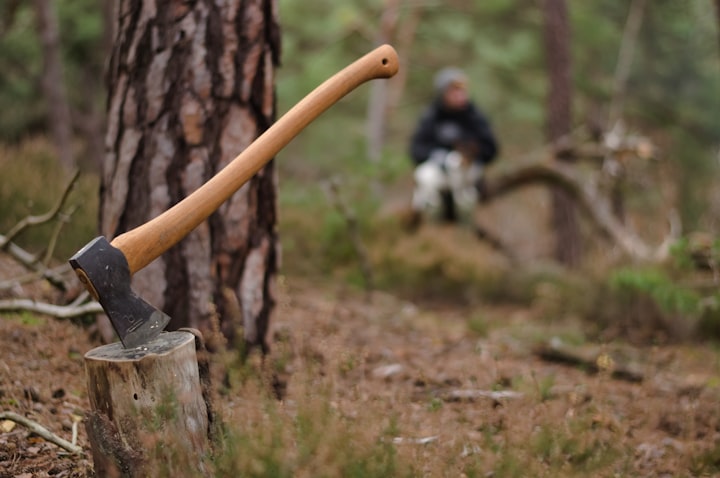
Even though I disliked all the plastic and trash we generated, I didn’t argue we should do more. Not my house, not my house rules. And I couldn’t argue when they had good points and good reasons not to worry so much about the environment; when did they have the time with a special needs son who required so much extra time to feed, wash, and dress? Life was complicated enough, and I was the only one in the household worried about it. But I didn’t know what to do. I see these spectacular stories of kids that are doing great things today, and I watch with both wonder and envy. I wanted to be those kids growing up. I wanted to do those things. But I didn’t know how, nor did I have the support of a family on-board with that type of mission.
I never outgrew that discomfort with the throwaway culture, and as I grew older I started to doubt that anyone was making good decisions about how these items were created and disposed of. Why did everything still produce so much waste?
Documentary after documentary showcased the consequences our trash has had on other living things: animals covered in oil, carcasses autopsied with their stomachs bursting with netting and wrappers and all manner of indigestible, unnatural junk, living animals suffering from cuts and infections from boating accidents or line tangled over them and cutting into their flesh... I could not justify these things - cannot. How can anyone justify needless suffering? No other animal lives this way - causes this type of widespread pain-by-design.

I’m not saying that I was great with reusing and recycling myself; for the first two decades of my life, I was equally part of that throwaway culture. But what could I actually do? What could I do that would make any significant impact? There was so much that needed attention; where would I start? Seemingly everything was wrapped in plastic. Made of plastic. Stored in plastic. Covered in or full of chemicals with warnings of poison, death, and injury.
I was also aware of how useful some of the disposable items were as far as practicality. Single-use medical gloves, for example; they are an unfortunate necessity. The disposable diapers for my brother as well; while the current ones we use now are made mostly of natural materials and will break down fairly quickly, that was not always the case, and it would/will be subject to whatever the company we get supplies for my brother from sends us, so long as he qualifies for such services. We could switch to cloth diapering, it could be argued, but I don’t see that happening, even in the far future. There is enough laundry and other chaos to contend with without that, or at least right now.
So what was my first “eco-friendly” decision after moving out? I opted to try making some homemade replacements and started with laundry detergent recipes. My parents had always used liquid detergent, so I was uncertain about trying a powder version. I was eager to try it too though; I was concerned about how much water we as a species have removed from the environment. After pricing out how much the chosen recipe would cost me, I decided I’d spent $20 on worse and it was worth a try, as it was supposed to be a large batch that would last a long time.
I’ve since made it twice more - the batch lasts me nearly two years (bearing in mind my partner washes his clothes separately with store-bought liquid detergent)! The clothes don’t really smell like any fragrance after washing - just damp clothing. And I have no complaints; the recipe seems to work quite well for us, even though I usually wash in cold water.

After my success with the detergent, I then looked into wool dryer balls. These are balls of dense wool that are put into the dryer to help dry the clothes faster, act as a softener, and reduce static and fur. My goal was to: make laundry detergent for cheap, saving us money, to wash in cold water to reduce energy costs, and to merely use the heatless cycle on the dryer to soften the clothes some and to help pull out any pet fur that might still be in the clothes after washing. Though it would still use some energy, running it without heat would still use less. I was also interested in line-drying the laundry, but at that time, we lived in an apartment on the third floor. However, after mentioning it to my mother, she purchased a folding laundry rack for me for a birthday gift. It still serves me well about 5 years later, particularly in the winter when I can’t use my outdoor one.
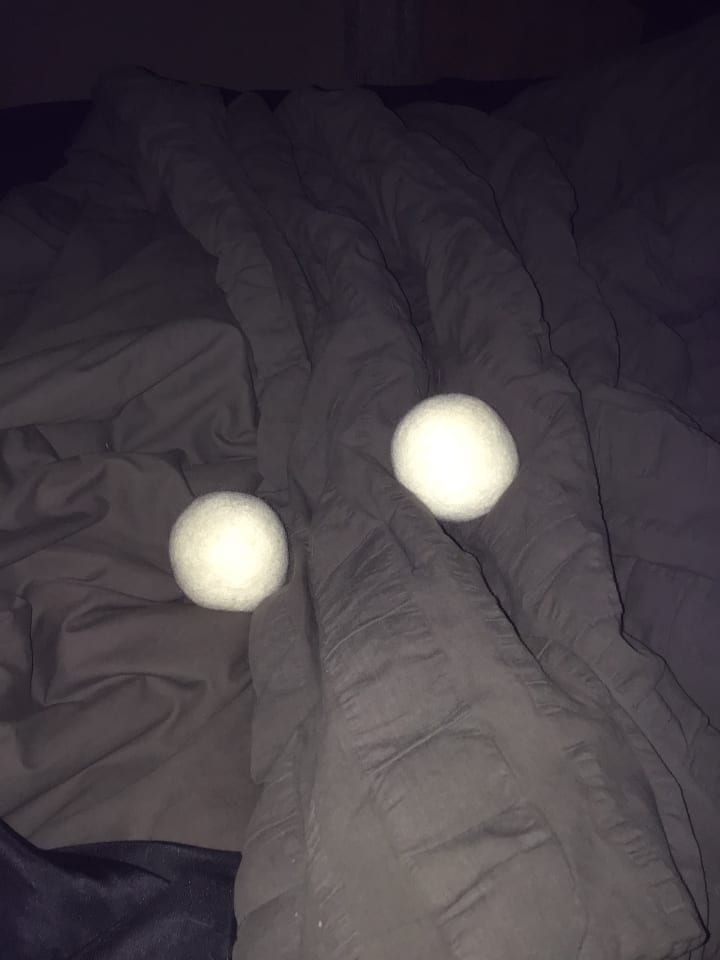
Following these first few changes, I found myself looking into more reusable cleaning products. Mainly, I was looking for an alternative to paper towels. Turns out, the alternative to paper towels is, well, towels. Or at least a thin cloth. I was interested in the “unpaper towels” in all versions: sometimes they’re just towels with clasps attached, or bamboo-based, washable and compostable disposables. Instead, I sacrificed some old, ill-fitting, and torn clothes. Really, I just cut the old clothes into loose square and rectangular shapes. Some are thin, some thick. Not as pretty as the ones folks sell, but they work fine. We still use paper towels for pet messes, and my partner pretty much always uses paper towels for messes, but I try to remember to use the scraps. Results may vary, but after a while I can tell which one is best for which type of mess. Worst case, I use another and wash them both.

After some debate, I purchased both menstrual cups and reusable pads. The cups are the most eco-friendly by far, but they aren’t really recommended for someone like me who uses an IUD to prevent pregnancy, as the removal process can cause suction which can displace the IUD. I chose the cups for an upcoming trip out of the country, so I didn’t have to pack half a suitcase of feminine products, and learned how to remove the cups by breaking the suction seal on one side before removing, instead of just pulling on the removal ring, to try and avoid displacing my IUD. The washable pads, though requiring more water and detergent to clean, have since become welcome additions to my bathroom, purse, overnight bags, backpack...etc. I enjoyed both products so much, I stopped using store bought feminine products outright. I was so over the monthly cost, tax, individual wrappers, and one-time use plastic applicators. Plus, with the washable pads, all the other occupants in the public restrooms hear is the inconspicuous snap of a clasp, rather than that embarrassingly tell-tale rustle.

The toilet paper was a bit more questionable. After the success with homemade counter wipes, I was hopeful that using some smaller pieces of cloth would work for me. I wasn’t going full cloth, though - I still use normal toilet paper for the main event. However, given how much single-use product I was using because of that monthly mess in particular, even just replacing toilet paper with cloth for that use has since really made a difference, and we happily go through much less toilet paper. To be courteous to my partner, I wash my pads and toilet cloths in a small, separate load from all other laundry. I’ve been using both for about five years and am only now seeing some wear and holes on just a few pieces. All the pads are holding up well, but I decided to buy a few more sets this year to start off 2021. I wait until after the holidays to see what I receive and then buy some items at the new year. Maybe I’ll learn to use that hand-me-down sewing machine so I’m able to make my next set.
I also bought some reusable food bags this year: silicone bags that are freezer, dishwasher, and microwave safe, and some that are hand-wash only for pantry snacks like nuts and berries. The silicone ones take a bit of work to separate the sides the first time, but after that and a wash, they work as intended. We rarely use plastic snack bags as is, but I am completely over tossing those stupid one-use things away. My boyfriend’s former girlfriend left behind a box of 500, and I use them for my office by placing index cards inside and writing on them with dry erase markers, but I wanted an alternative to the single use bags for food. For context, my partner and I have been together for nearly 7 years and I’m still working through that box of 500.

Beeswax wraps work well for things like halved onions and whatnot, but my first set itself is halved, as they were a simple yellow and my partner, trying to clean the fridge before I returned from helping my parents with my brother on a trip out of state, mistook the wraps as old fast food wrappers and accidentally tossed several. I have yet to replace them, and am looking into making my own, as I do have beeswax and some disposable clothes to work with, though I’ve read it requires some sort of resin to give it a true stick.

I’ve been cutting our milk jugs into planters after use and sometimes paint them with acrylic paints leftover from when my mom’s workplace decorates for holidays. Most of them would just throw the leftover materials away, so she often brings me what is leftover. I break down styrofoam pieces to use as drainage. I save coffee grounds, crushed eggshells, and even pistachio shells for use in the yard/containers. Also save items for compost, but I haven’t gotten the hang of composting yet.
Buying castile soap bars, I could use them as is or I grate the bars and “melt” it in hot water to make liquid soap. This still uses extra water, but only when I need it. Plus, it’s a nice perk to make it that way and add fragrance every once in a while to mix it up.

I tried my hand at homemade dishwasher detergent. It wasn’t a complete failure, but wasn’t as successful as some other attempts. I’ve since compromised and still use detergent tabs from a big brand, but I make sure to buy the ones without individual foil wrappers. This means I have to make sure my hands aren’t wet when I grab a tab, but it’s a small price to pay to keep all those wrappers from bird nests and the stomachs of animals. I may try a homemade version again, though. Homemade clay and charcoal toothpaste powder and coconut oil-based deodorant attempts also fall under this category. I still use the so-so batches up, and I’ll likely try again. Maybe different measurements. Maybe different ingredients. Maybe a different medium. Worth another shot.

We bought a small greenhouse, but although I was hopeful to get started growing something, I may have to sit and wait another year before I have the yard figured out enough for that. My partner replaced the used lawnmower my dad gave us with an electric one after we had too many issues with the gas hand-me-down, and he mulches the grass into bits that we let lay on the lawn. We don’t spray pesticides and let the yard grow some dandelions. We’d rather the bees use them than worry about what the neighbors think looks good. We rather like it when it looks a bit wild.
I may be successfully composting yet, but reducing food waste has been an interesting learning curve. I hate bananas, so for a long time, if my boyfriend forgot about some, they went in the composter. I’ve since started making banana bread out of them, and then composting the peels in another compromise. I try to regrow onions from scraps, but beyond a certain stage, I’ve failed. Fruit in general is a difficult one to deal with. My mom sends over all kinds of extras, and either I’m not in a fruit mood or it’s a fruit I don’t like the texture of. I’ve found the dehydrator to be my best friend for this issue. When mom sends over too many blueberries, I freeze and dehydrate them (freezing first helps break the skins) for later baking use. I like kiwi, but never seem to be interested in it, so pureeing it and dehydrating it as fruit leather helps me cut back on the waste.


In baking, I try to use flax meal or chia seeds in place of eggs, so that I can enjoy the actual eggs by themselves (ex: pancakes made with flax so I can have those eggs with the pancakes instead of in them). I have made butter in my blender from heavy cream when I couldn’t justify a trip to the store for one item. And I try to use other forms of milk than dairy when I can. So long as I’m not making something for a relative with food allergies, I’m happy to use other forms for my baking. Leftover flat soda or tea makes great homemade popsicles or gummy bears. Black bean burgers are a tasty alternative to beef burgers if I’m not absolutely craving meat. Meat is a hard one to overlook in my family; it was practically a right of passage when I was able to consume my first solo T-bone. I rarely get steak anymore, so it has become a special treat when I am over at my parents’.


I often get laughed at by my family for these things. Why go through all this hassle? I guess they don’t feel the same guilty shame I do every time I toss a piece of plastic. But now nearly 30, I begin thinking about what I want my future footprints to look like. To keep it simple, let’s say I live to be 80 - another 50 years. If I lose the mindfulness I’ve been trying to keep about the environment, how much trash and carbon will I put into the environment over that time? If I keep being mindful and keep working to lessen my footprint, how much will I avoid?
The fact is, I know I could do plenty with a lot less. Not every cup of coffee has to be my absolute favorite; not every dish of food needs to have meat; not every mess requires the chemical-laden brand-name cleaner. Cutting back isn’t cutting it out, but it’s better than unchecked, unadulterated gluttony. Can I be satisfied with less? How much more would I enjoy a good cup of coffee if most days it was just “okay”?
I have made some changes since I moved in with my partner. They haven’t always been successful, and some did even better than I could have hoped. I can’t expect everyone else to do these things, but I can do what I am comfortable with and keep working to improve. There are folks who have done so much more - reduced their footprint so much further - and there are folks who will never be bothered to try, or even actively contribute to increasing their footprint in sheer spite. All I can do is try.


I’ve many more items I can replace with alternatives when I have funds to do so. I can try to estimate where I can make more improvements, such as buying seeds, oats, and nuts from the store bulk dispensers rather than buying the ones in plastic bags and containers. I can be more mindful of where products I order are coming from, and how much of a footprint comes with the delivery of them. I still have old feminine products; though I did send many boxes to family members with a household with 4 women, I should consider donating the rest. Maybe look into some volunteer work cleaning up an area, or seeing if the local animal shelter could use old newspapers, clothes, supplies and such. I know there’s places where I can pay a fee to use tools I don’t have, such as wood saws and the like; maybe I ought to look into them and learn how to do a few more house projects myself.
Eventually I’ll get the garden and plants going, and I look forward to reaping the rewards of that some day. Those homegrown veggies will taste a lot better when I’ve put in the work to know where they come from. And it will be rewarding to undergo that slow-paced journey from seed to plate with my food.

Between my parents and our household with six furry critters, it’s hair central; everyone has long hair. Maybe I should think more about saving the shed stuff to donate to something like Matter of Trust, who accept such donations to make oil-soaking mats and such out of it. I’m also in favor of switching to shampoo and conditioner bars in the future, when I have enough funds for my next batch of alternative products.
I don’t drive, so it isn’t surprising that I do place some orders to be delivered. I may need to look into what I order a little more though, and opt to purchase from a more local area, even if it is a bit more expensive or slightly more inconvenient to go in person. I may also consider shopping and ordering with friends and neighbors to help curb that footprint. I have a friend in our neighborhood - maybe we can go 50/50 and split bulk products. Grocery shopping together could be a new bonding experience between us! Maybe next year, we could talk to our neighbors about having the trees in the area trimmed altogether over the course of a few days instead of dragging the services out over weeks and months and having the same two services drive out countless times.
Even though my parents may not want to spend the time recycling themselves, they do know it is important to me and have done a few things after I’ve mentioned it. Dad now scatters used coffee grounds and crushed eggshells in the yard, mom uses citrus peels in the garbage disposal to freshen it up, and mom has purchased socks and slippers of recycled materials as birthday gifts. I’ve bought my mother stretching silicone covers for leftovers, so ideally they don’t use so much cling wrap and foil, and I've bought reusable bamboo makeup remover pads for my sister.

Going forward may also mean making some changes in small, daily habits. Both my partner and I are often night owls. While I don’t see that changing easily anytime soon, it could be argued we could learn to do certain things at different times, or take advantage of the spots in the house where natural light lingers longest. Once light leaves my office, could I move downstairs to work, where the light lasts a few hours longer? Maybe even use good weather to my advantage and sit outside with the laptop? Can I get by cleaning the bathroom at dusk with the little light from the skylight? Maybe light some candles at night, mindful of the critters in our house? I suppose the next time I’m up until the sunrise, I could try doing a few things in the natural daylight that I normally don’t get to until after dark.
Perhaps the most effective way I intend to curb “my” carbon footprint will be by continuing to use birth control. I have used the Paragard Copper IUD for 6/10 years so far. However, I am reminded that I need to consider what I will do after I have it removed. Ideally, I’ll get the go-ahead to keep it a few more years (some studies show the copper IUD to be effective at least 12 years - two more than standard). However, I must seriously consider permanent sterilization. Uninsured, tubal ligation (getting my tubes tied) is likely to cost several thousand. Maybe more by that time.
While it would be easier and cheaper to have my partner undergo a vasectomy, I’d rather have the peace of mind that I will never become pregnant. I have never desired a child. I have acted as a third parent to my brother all our lives, and will act as caregiver when my parents no longer can, and I am either utterly disgusted or unsettled by pregnancy. So while it is a daunting thought to have to consider invasive surgery to disable my fertility, the thought of becoming a mother is disturbing enough to me to warrant it. I do not want children, end of. Besides my personal choice, by not bringing another human being into the world, I eliminate another carbon footprint altogether. It’s not like there aren’t thousands of orphans or animals any day of the week that already need homes; why should I bring a child into this world when it already struggles to cope with all the human population’s unreasonable demands?

The environmental problems caused or exacerbated by humankind are numerous, various, far-reaching, and often complex. In our pursuits of ease, comfort, and necessity, industrialization rose up, and with it began many of the issues we see today. Where in the past, it was up to individuals or a small group to provide resources from the surrounding land, now we have access to as many resources as funds allow. Resources are no longer sought as needed, but farmed and supplied, often in surplus for the sake of reducing costs.
What am I willing to sacrifice in order to curb and reduce my impact?
My efforts won’t single-handedly turn the tide of climate change; a mere drop in the ocean. Some items are a necessary evil; maybe one day sustainable options will be created, but for now, it’s all we have. I’ll never reach carbon neutral, or undo the 30 year’s worth of damage I’ve already done. There’s things outside of my own control that I cannot change, and I’m not always going to be perfect about keeping every single disposable out of my trash can. But I bet, in my next 50 years, I can keep a big pile of junk and carbon out of my environment worthy of my efforts; not perfect, but a considerable attempt. I don’t know if I’ll ever be a person who plants an entire forest, but I intend to be one who doesn’t cause the destruction of an entire forest either. Supply is often constant because demand is often constant. There is very little that is truly constant in nature, so why do we try to be? We don’t have to be.

I’ll keep trying alternatives. Keep making homemade items. Keep looking to do better, or more. Use less, and seek more sustainable purchases. Encourage my friends and family to try anything they are comfortable with. I will try to buy more seasonally available items, try a slow-but-steady approach to my own habits, and try to be a better earthmate to our fellow creatures. I’ll try to use less toxic cleaners, but I know there will be times where the chemical-heavy name brands will be needed. I can’t say I will give up meat entirely, but I can most certainly cut back and try more vegetarian and/or vegan options. I can read up on upcoming state elections and vote for actions that not only support humans, but other creatures as well and learn how ecosystems in the area work. They were all fine until humans crashed the party, and we need to help clean up the house we’ve trashed.
Excuse me; I’ve been bitten by the hydra and need an antidote. Best of luck finding yours.
About the Creator
Megan Baker (Left Vocal in 2023)
A fun spin on her last name, Baker enjoyed creating "Baker's Dozen" lists for various topics! She also wrote candidly about her mental health & a LOT of fiction. Discontinued writing on Vocal in 2023 as Vocal is a fruitless venture.


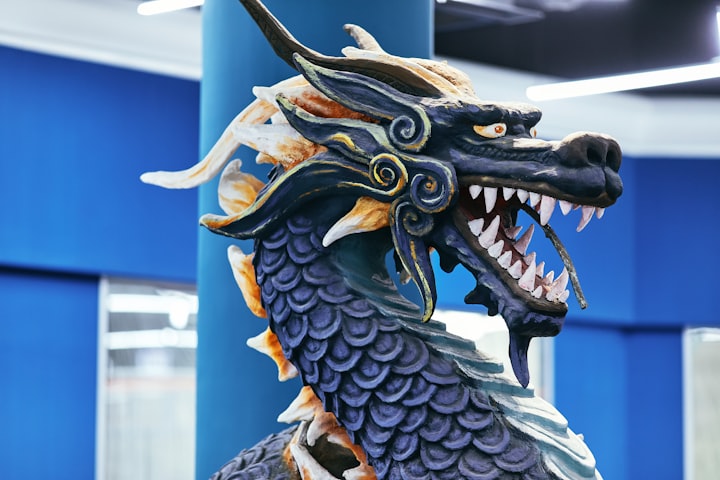
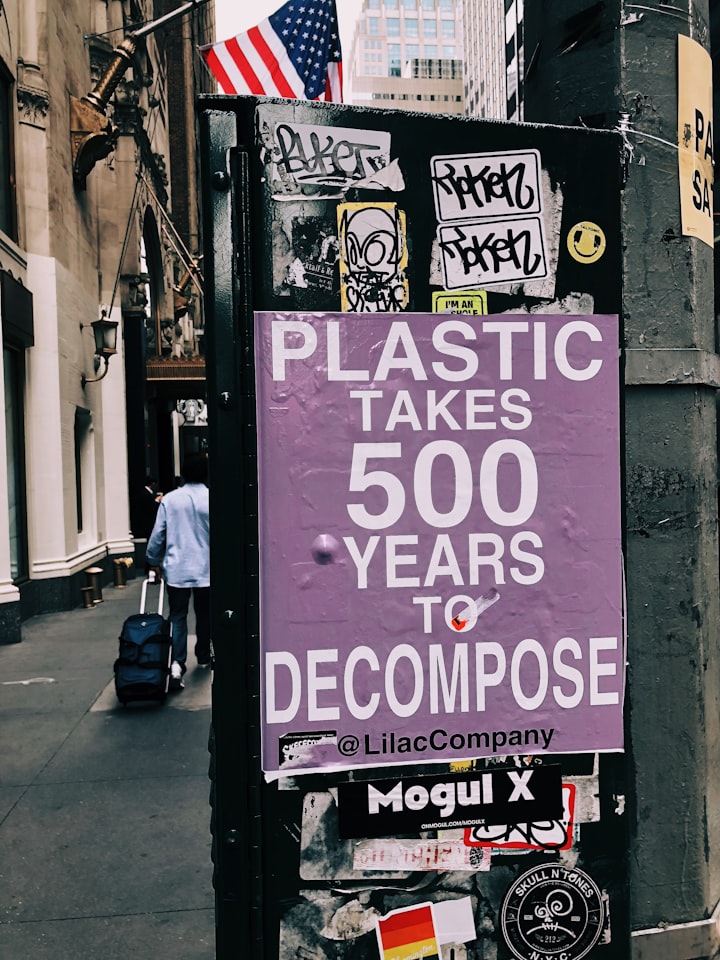
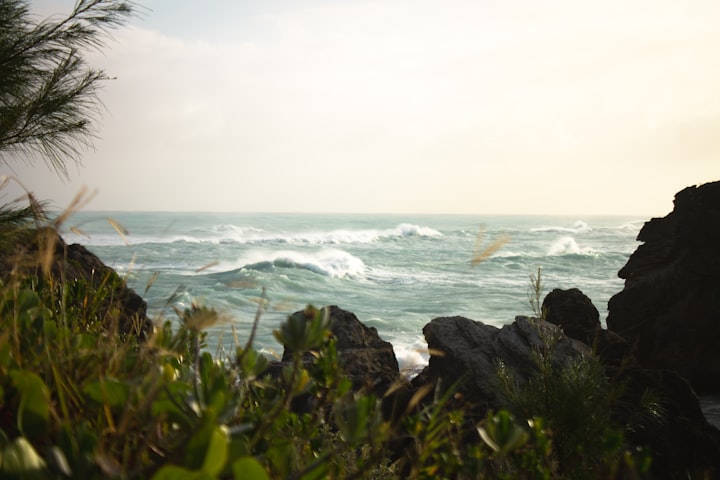


Comments
Megan Baker (Left Vocal in 2023) is not accepting comments at the moment
Want to show your support? Send them a one-off tip.